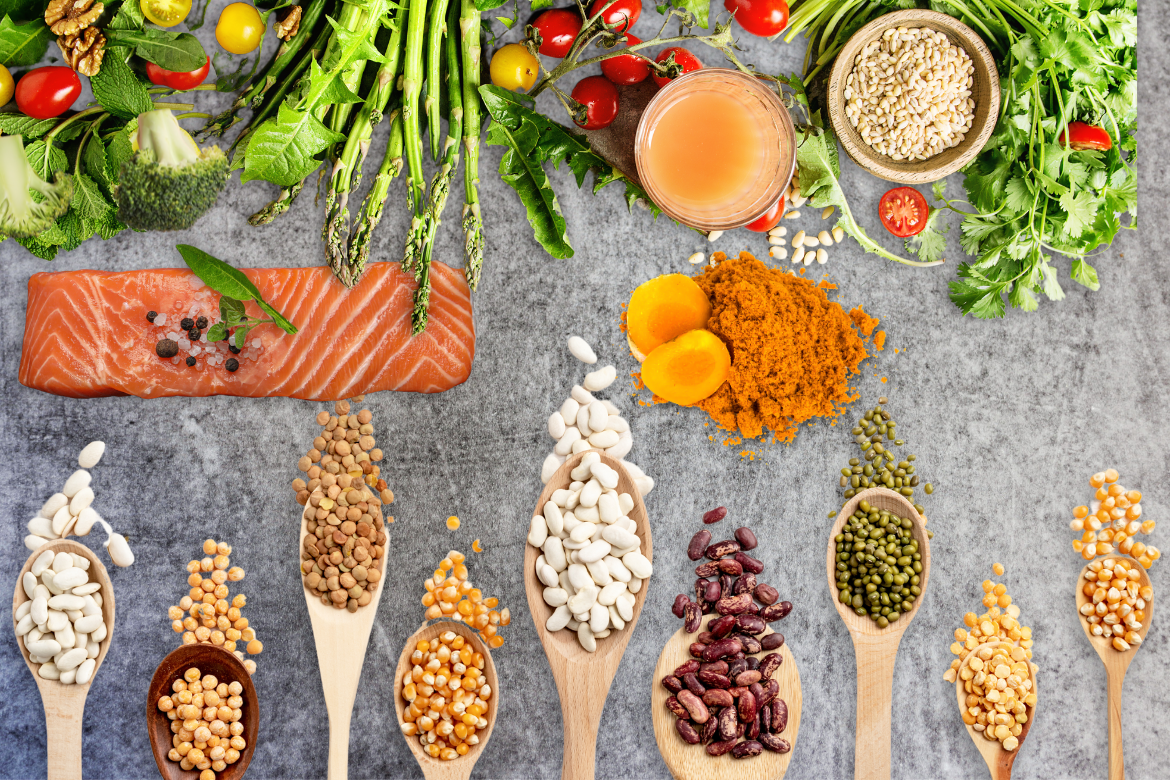

Anti Inflammatory Diet: Key Foods for Fighting Inflammation
January 20, 2025 by Counseling and Wellness Center of Pittsburgh anti inflammation diet, anti inflammatory diet, anti inflammatory diet food list, anti-inflammatory diet, dietician, dietitian, dietitian nutritionist, dietitian nutritionist near me, healthy eating, healthy food, inflammation, nutrition, Nutrition Counseling, Nutritionist, registered dietician, registered dietitian, registered licensed dietitian 0 comments
Have you ever scrolled through your newsfeed and felt overwhelmed by all the talk about inflammation and the anti inflammatory diet? With endless posts, videos, and articles, it’s easy to get lost in the sea of conflicting information. Many of the tips shared today are rooted in diet culture, promoting extreme restrictions and quick fixes that often leave us feeling more stressed than empowered. But here’s the truth: reducing inflammation isn’t about following the latest trend or obsessing over what you can’t eat. It’s about building a healthy, sustainable relationship with food—one that nourishes your body and mind, without the fear or stress that often accompanies strict diets.
What is Inflammation?
Inflammation is the body’s natural protective response to injury or infection. While acute inflammation is beneficial and helps protect our bodies, chronic inflammation can have a harmful impact, increasing the risk of chronic diseases like heart disease, diabetes, and cancer.
So, how can we reduce chronic inflammation? An anti inflammatory diet is an important piece of the puzzle, but it’s not about perfection or stressing over every bite. In fact, stressing about food can increase cortisol levels, which may actually lead to more inflammation. Instead, building a peaceful and balanced relationship with food is often the first and most impactful step.
What Does An Anti Inflammatory Diet Look Like?
When approaching an anti inflammatory diet, focus on what you can add to your plate rather than what you need to restrict or eliminate. No single food will magically reduce inflammation—it’s the variety and synergy of nutrients that make a difference. By prioritizing diverse, nutrient-dense foods, you can help your body reduce inflammation and support overall health.
Here are the key components of an anti inflammatory diet:
- Fruits and vegetables: Aim to “eat the rainbow” by including a variety of colorful fruits and vegetables. These are rich in fiber, vitamins, minerals, and polyphenols, which all play a role in reducing inflammation.
- Plant-based proteins: Incorporate legumes, beans, tofu, tempeh, nuts, and seeds regularly. These protein sources are lower in saturated fats and higher in nutrients that support inflammation reduction.
- Omega-3 fatty acids: Found in foods like salmon, sardines, mackerel, cod, flax seeds, chia seeds, walnuts, and hemp seeds, omega-3s are well-known for their anti inflammatory benefits.
- Herbs and spices: Ginger, turmeric, garlic, oregano, and other spices not only enhance flavor but also provide compounds that can help combat inflammation.
Focus on Balance, NOT Restriction
One of the most important aspects of an anti inflammatory diet is to avoid an all-or-nothing mindset. It’s not about cutting out processed foods, fried foods, sugar, or refined carbohydrates completely—it’s about finding balance. Consider gradually replacing or reducing these foods with more nutrient-dense options.
Deprivation can lead to stress, cravings, and even overeating. If you’re craving a chocolate chip cookie, allow yourself to enjoy it without guilt. The key is to focus on the bigger picture: nourishing your body with a variety of anti inflammatory foods throughout the day, while also enjoying occasional indulgences.
By approaching an anti inflammatory diet with balance and flexibility, you can reduce chronic inflammation, improve your health, and feel confident in your relationship with food.
If You’d Like Customized Anti Inflammatory Diet Help From Our Registered Dietitian, Reach Out
Greta Garland, RDN, LDN, our Registered Dietitian, can support you in building a sustainable anti inflammatory diet. Rather than focusing on restrictive diets, her approach emphasizes nourishing your body in a way that feels good and is sustainable.
Greta accepts Aetna, Highmark Blue Cross Blue Shield, Medicare, Optum Behavioral Health, and Optum Medicare Advantage.
Fill out the form below or contact us at 412-856-WELL to get started with Greta.
Written by Greta Garland, RDN, LDN.
anti inflammation diet anti inflammatory diet food list Anti-Inflammatory Diet dietician dietitian dietitian nutritionist dietitian nutritionist near me healthy eating healthy food inflammation nutrition nutrition counseling nutritionist registered dietician registered dietitian registered licensed dietitian
Related Posts
What are the benefits of a high fat diet?
September 16, 2018
What are the benefits of a high fat diet? Liz Mckinney, CNS, LDN continues to...
The Big Fat Myth
September 6, 2018
Big Fat Myth, High Fat Diet and how it affects health. Open a women's...

